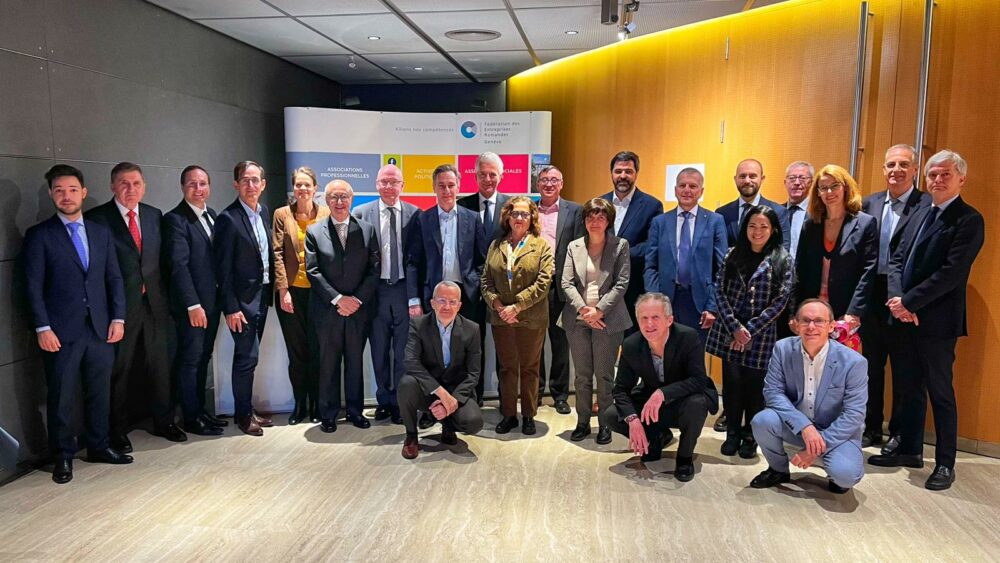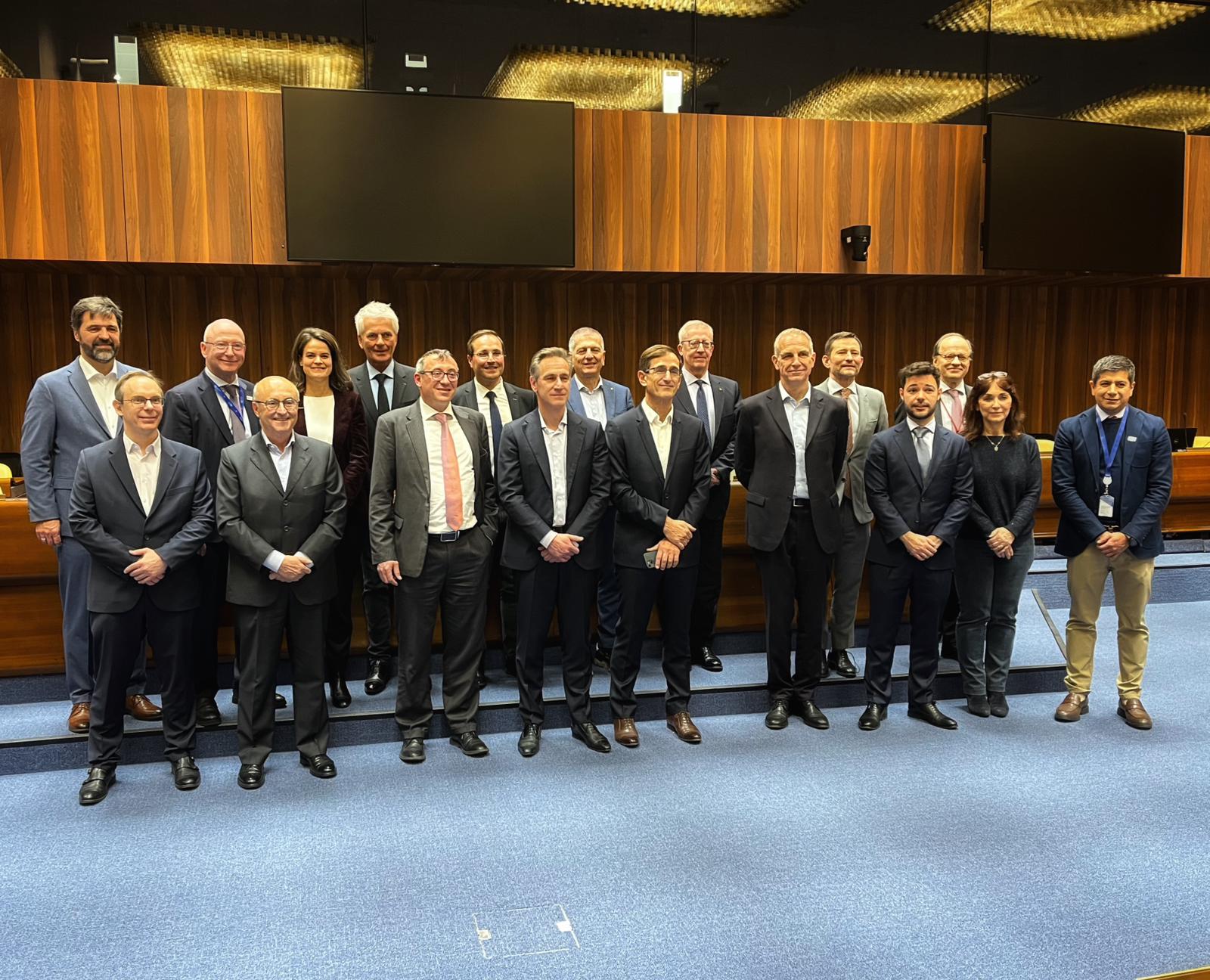- The vice president of Foment, Joan Roget, highlighted at the Forum held in Geneva that GDP is increasing in Catalonia, demonstrating the region’s dynamism
- The Forum for the Development of Companies in European Regions (FODERE) brings together five of the most economically dynamic regions in Europe
- A shortage of skilled labor and historically low unemployment rates have been observed in all regions
- Digitalization, demographic aspects, climate challenges, and energy prices are common concerns
The annual meeting of the Forum for the Development of Companies in European Regions (FODERE) was held this year in Geneva, at the headquarters of the Federation of Romande Enterprises (FER), and highlighted the shortage of skilled labor and historically low unemployment rates in all regions.
After a morning of conferences on digital transition and its impact on the labor market, the five member business organizations —Federation of Romande Enterprises, MEDEF Auvergne Rhône-Alps region, Foment del Treball, Landesvereinigung Baden-Württembergischer Arbeitgeberverbände (UBW) and Confindustria Piemonte— addressed the economic and political situation of their regions. They all agree that digitalization, demographic aspects, climate challenges, and energy prices are common concerns.
Present at the event were the vice president of Foment del Treball, Joan Roget, the general secretary of the employers’ association, David Tornos, and the director of International, Kilian Garcia, who were able to meet, in addition to the business leaders of the five most industrialized European regions, with the Director General of the International Labour Organization (ILO), Gilbert F. Houngbo.
Labor Shortage
All regions reported encouraging unemployment rates, though to varying degrees, ranging from 2% in Switzerland, 7% in France, and 9.3% in Spain. These historically low figures are accompanied by a strong shortage of skilled labor and a profound shift in workers’ expectations towards the job market. “COVID represented a true sociological turn, leading to a transformation of work and a change in the relationship with work,” insisted Jean-Luc Raunicher, president of MEDEF Auvergne-Rhône-Alps. In Baden-Württemberg, it is interesting to note that this labor shortage was the main concern for companies recently. Now, weak domestic demand occupies this place, explains Manuel Geiger, director of UBW.
Energy Crisis and Inflation
In Germany, SMEs openly express their fears regarding energy prices, which have a strong impact on supply chains. The price of consumer goods is also rising, resulting in not very optimistic economic prospects for 2024; German companies are investing little.
In Catalonia, the price index remains at a high level, indicates Joan Roget, vice president of Foment del Treball. However, he is optimistic in noting that GDP is increasing, with rising foreign investments, demonstrating the region’s dynamism.
Exports
After a very positive start to the year, especially for the automotive sector, Piedmont notes a decrease in household consumption and a drop in exports, explains Gianluca Giordano, regional vice president for SMEs of Confindustria Piemonte.
In Switzerland, the strength of the franc also affects export-oriented companies, which pay the price of the Swiss National Bank’s anti-inflationary policy, estimates Ivan Slatkine, president of the FER.
Industrialization and Environmental Challenges
Jean-Luc Raunicher highlights “the end of happy globalization.” While this has greatly allowed poor countries to improve their condition in recent years, the energy crisis following the pandemic has marked the end of smooth global exchanges. Recovering industrial sovereignty is now a priority for France. It will be one of the biggest future challenges, as will the necessary environmental transition, which requires investments of the order of 40 to 50 billion euros per year in France, most of which will likely not affect the competitiveness or performance of companies.
Sustainability issues were also addressed by Gianluca Giordano. “From now on, companies will not only sell products but also processes,” he opines. He also mentions the demographic problems related to low birth rates and an aging population. These are also noticeable in Switzerland, especially affecting social security, which is on the political agenda for 2024, and also healthcare costs, notes Ivan Slatkine.
About FODERE
This Forum was created in 1987 with the intention of bringing together the business organizations of the five most dynamic and industrialized regions in Europe, which are also geographically intertwined. Its primary goal is to act before European institutions and public administrations to promote actions that favor the development of businesses and the productive economy. The five European business leaders have pledged to intensify the exchange of ideas and solutions to common problems by taking advantage of new technologies.
The presidency of FODERE rotates annually among the business organizations that comprise it.











Comments are closed.